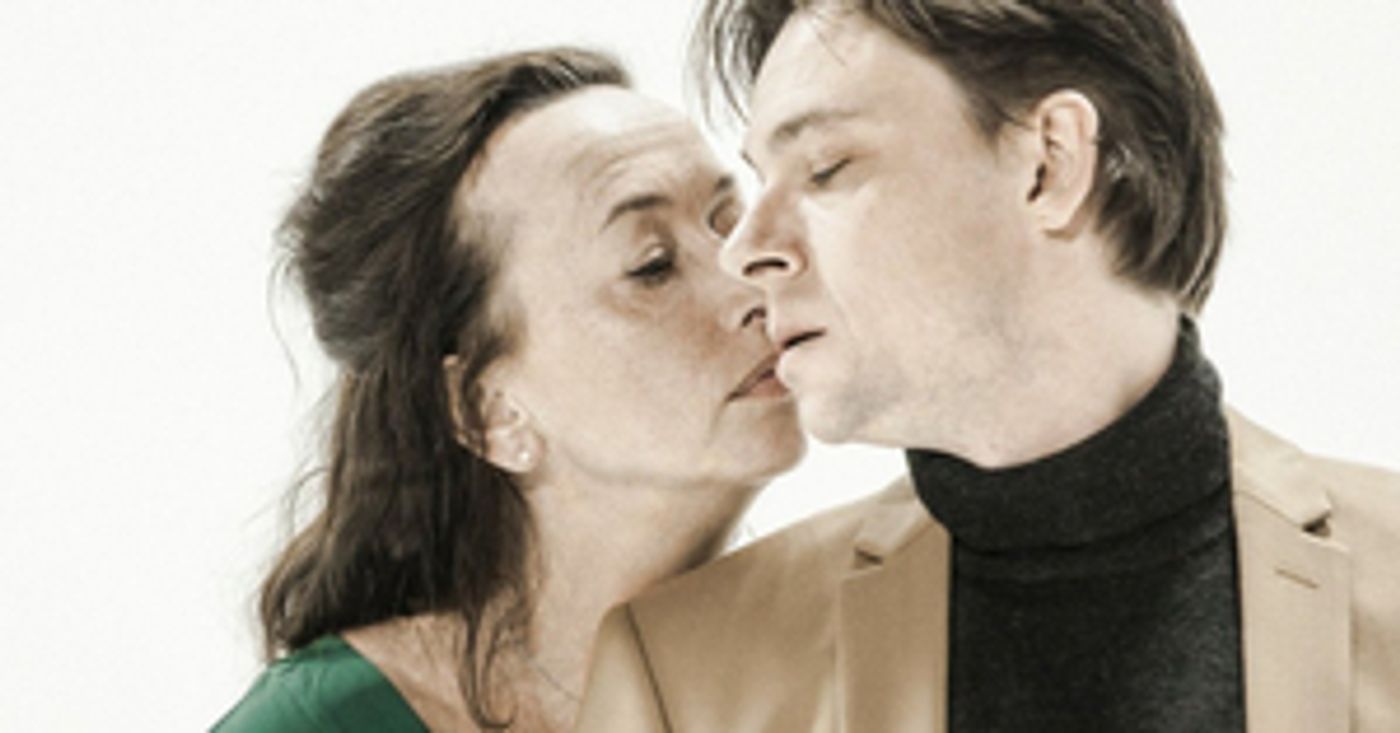Review: MEDEA at Istanbul Theatre Festival
The ITA-Ensemble production had a new home in Istanbul for two days.

"If you go back to the Euripides story in the original mythology, you notice that Jason didn't do anything. He literally didn't do anything. Medea puts the dragon to sleep, he just waltzes on in and picks up the golden fleece. She kills her own brother (...) And then Jason and his Argonauts get all the credit. And I found that suddenly fascinating, looking at this original story. And then I was really interested in writing a play about this epidemic of female energy being used behind the scenes and not being credited, female genius and female kind of sacrifice." (BAMorg, 2020)
Simon Stone's Medea found a new home at Zorlu Performing Arts Center for the Istanbul Theatre Festival. The space hosted the cast and crew of this spectacular play and its smitten audience for two days. Some fell so hard for the award-winning actress Marieke Heebink that they just couldn't talk about anything else. And some (especially the theatre-makers in the audience) seemed to have a revelation in terms of adapting Greeks. 'See how simple it was. No confusion. This is what the play is all about,' one said to her friend.
Simon Stone looked for the vein that would bring his Medea to the current for a while. He found the story he needed in the infamous Debora Green case: an oncologist who poisoned her husband with ricin and then killed two of her children in a house fire. Alexis Soloski calls this attempt "taking the unthinkable and making it thinkable" (Soloski, 2020). He sewed parts of the incident and his idea of Euripides' story together and created a beautiful piece that resonates with the audience.
Stone's Medea begins with Anna (Marieke Heebink) coming out of the asylum to which she was sent because she had been poisoning her husband since she had found out he was having an affair. The incident has high costs: she now has lost her job, her reputation, and the custody of her children. The play moves on from there to the inevitable end of the tragedy.
His characters cannot find an escape from their situations in Bob Cousins' all-white set. The actors are exposed. No shadows, no place to hide. Even when the characters are having an intimate moment, a camera is there to follow. From time to time Anna zones out from certain conversations, but looks in the camera, to the audience who can see what she is going through. It's always in Marieke Heebink's eyes: there is no chance this can end well.
The back wall rises from time to time revealing a bigger space that seems infinite. This space that reminds us of some sort of limbo slowly takes its final shape as the ashes start falling down. The reality of the inevitable seeps in. Ironically, the ashes are first recognized by the children. They play with it, throw it at one another, then spread it all over the space. Without being aware, they prepare the stage for their own demise. Unlike her husband, Anna is an imaginative woman and when she goes down, it's big.
Aus Greidanus Jr.'s Lucas is a seemingly responsible and likable father figure. As the play nears its end, we became acutely aware that almost everything was and is handed to him. Once it was Anna, now it is Clara and her father. In their only completely-honest scene with Anna, we get to compare him to Anna. He is a simple and selfish mind who doesn't think his actions thorough, we realize he is not even really aware of the sacrifices Anna has made during their marriage. It is his mind that brings Anna to her deadly decision. As he gets ready to move on with his next giver Clara who is both young and powerful unlike Anna, he attempts to leave her behind. Unable to accept that, Anna takes out every single figure that can give him a happy future. One of my favorite details about Stone's Medea is Anna choosing to burn down the house with the kids and herself in it. I love the fact that she wipes out everything she has given Lucas at once: herself, the children, the house. There are no fires on the stage but it is sensed in every way. Anna's action contaminates the entire space, polluting the white with ashes.
The trick tragedies play on us is that we think they'd never happen to us, not in this time. Stone's play shows us they very much can happen to anyone, any time.
Think the unthinkable.
"I made it for the women I know that would never want to sit through that show," says Simon Stone (Soloski, 2020).
There are no shadows in the human mind.
Notes:
BAMorg. (2020) "Simon Stone on Revisiting the Myth of Medea." Available at: https://www.youtube.com/watch?v=MZ119fibrUA [Accessed: November 22, 2021]
Soloski, A. (2020) "Simon Stone faced the unthinkable. He thinks you should too.'" Available at: https://www.nytimes.com/2020/01/01/theater/simon-stone-medea-bam.html [Accessed: November 22, 2021]
Reader Reviews

Videos

